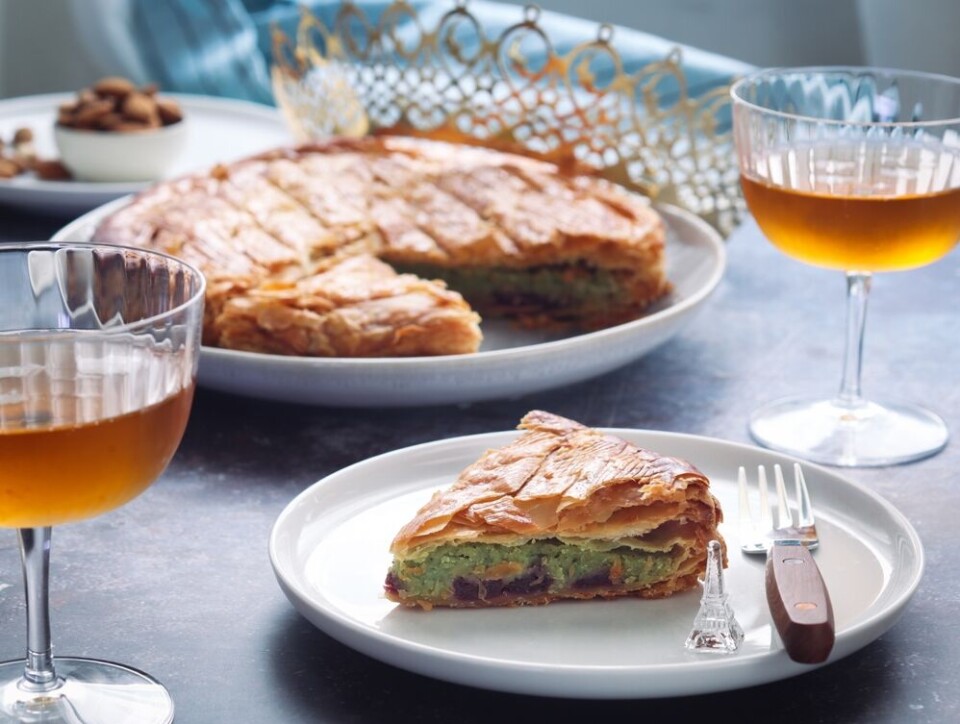-
Why Jordan Bardella is frontrunner for France’s 2027 presidency
Columnist Simon Heffer looks at the inexorable rise of the Rassemblement National's likely candidate
-
No crisps, no party games: the unwritten rules of French children’s birthdays
Columnist Samantha David describes the ups and downs of a French birthday party for children
-
More amusing place names in France: from Anus and Chitry to Misery
Readers add to the collection
Comment: It is good to go to your mayor’s New Year wishes party
Cérémonies des vœux take place all over France, giving elected officials a chance to ‘talk shop’ – while everyone else socialises

At the start of January mairies around France traditionally invite residents of the commune to hear their New Year's wishes. In January 2024, columnist Sarah Henshaw accepted one such invitation...
Newcomers to France learn pretty fast that it is bad form to talk about work at a party or the dinner table. A soirée is not a conference call.
But there is one exception. In the first few weeks of the New Year, mayors across the country organise social functions for the express purpose of briefing residents on all matters relating to municipal business.
Called cérémonies des vœux, they are essentially a ‘state of the nation’ address, offering a review of the council’s performance over the last 12 months, their plans for the coming year, votes of thanks and, of course, their best wishes for constituents and partners.
Food and drink
Sound a bore? Most are far from it. Like countless others, my own commune in rural Burgundy holds the vœux du maire on the weekend closest to Epiphany. It presents the perfect opportunity to serve up a year’s worth of dry administrative progress with a welcome side of galette des rois and sparkling wine around long, chatty tables in the salle des fêtes.
Read more: RECIPE: How to make a ‘perfect’ French galette des rois
For good measure, this year there was also an element of suspense thrown in as the winners of the inaugural and fiercely-contested ‘best decorated Christmas letter box’ competition were revealed.
Of course, you don’t have to attend the vœux for a full lowdown of the council’s achievements. December’s bulletin municipal, distributed to every house, had already briefed us on the progress of work on the church roof, and that the salle des fêtes’ ancient radiators had all been replaced with more energy efficient models.
But there is something about hearing it from the horse’s mouth, in the shadow of the church itself and already sweltering under three layers of clothes, that makes talk of spires and revamped central heating systems altogether more tangible.
From unpretentious to ‘XXL’
Although the format is pretty standard from commune to commune, each mayor will add their own touch.
Most are unpretentious ceremonies – paper plates and popular music. Some mayors have made tentative steps to incorporate technology, using video montages (which many first experimented with during the pandemic when vœux were forced online) to bring colour to speeches.
A handful go the whole hog in what France Bleu brilliantly described as ‘cérémonies XXL’. It gave the example of Marseille’s event in the town hall on January 13, where the packed programme included a Provençal show, brass band, face-painting and a cake tasting.
“As a mayor, I enjoy these events,” said Jean-Claude Gauthier, who has represented Metz-le-Comte (Nièvre) since 2009.
“Not only are they convivial, they are also useful in allowing me to tell residents about current projects or any difficulties.
“It’s important for people to get together formally and feel like they are participating in the life of the village. It makes them feel seen and heard.”
Mr Gauthier views cérémonies des vœux not just as municipal tradition, but as an opportunity to invoke the age-old notion of living together as a community.
With violence against elected representatives on the rise, this has never been more important.
The issue was thrown into stark relief in Morbihan on January 6, when the mayor of La Chapelle-Neuve used her cérémonie des vœux to announce her surprise resignation.
The 68-year-old mayor, who has been in office since 2014, said she had taken the decision to preserve her mental and physical health after a barrage of abuse on social media, threats at the mairie, and anonymous phone calls.
Read more: Hundreds of French mayors quit due to ‘Covid and increased workload’
New residents welcomed
Generally, people seem happy to have an excuse to get together and chat, to feel part of something. In small towns, where the whole population is invited, roughly 10 to 20% will turn up. In tinier villages such as mine, the uptake more than doubles.
For new residents Evelyne and Andrew Lindley, the event is primarily a chance to get better acquainted with neighbours and become more conversant with village life.
The couple moved to Nièvre from Lancashire, England, last autumn – just as bars, restaurants and other social spaces were shutting up for the season, leaving few opportunities to get out and about until the vœux.
Evelyne, who is French, said her 30 years out of the country and moving regularly around the UK has given her a new appreciation of these ceremonies.
“I can’t say I missed them when I moved to England, but looking back it would have been nice to have had such events, if only to get to know locals. When I lived in France before, I always enjoyed going into town and bumping into people I knew.
“I do think they’re a great way for people to understand what is going on in their local area. Is it only feasible in a small village though? I don’t know. Life did feel more impersonal in England, but we always lived in bigger towns.”
Renewing acquaintances
Just before leaving our local vœux, I grab the opportunity to talk through a clutch problem on our car with the local mechanic and, with the retired submariner whose garden adjoins the back of ours, joke about renewing our customary chats at the fence come spring, come sunshine.
The taciturn farmer, with whom I have only ever nodded heads while walking the dog past his fields, is also there. Emboldened by the bubbles and general hubbub, our exchange this time blooms into a full-blown ‘bonne année’, and I’m unreasonably pleased.
This, I think, is exactly what a cérémonie des vœux is all about: rallying the troops and talking things through, renewing acquaintances and taking baby steps towards new ones; community spirit and crémant; kinship and king cakes. Everyone leaves suffused with a warmth that is entirely independent of the upgraded radiators.
Read more
Fabophiles: can you guess what they like (clue: now is apt in France)?
France’s galette des rois: Six facts about this January 6 cake
























